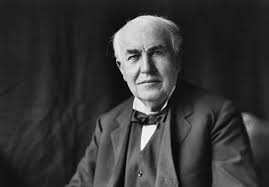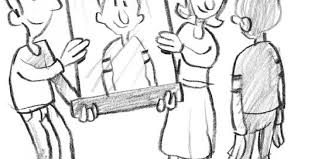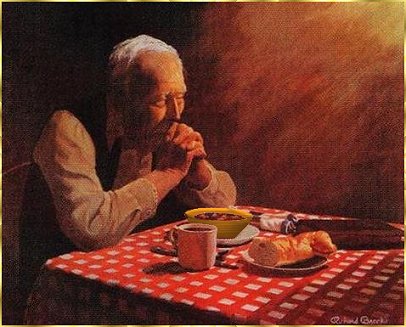 Jane Berkowitz’s Ten Best Stress Tips
Jane Berkowitz’s Ten Best Stress Tips
Feeling anxious, weighted down? Feel like you just can’t deal with the stress around you? Wishing the things that cause you to feel this way would just go away? Well, here are ten Best stress tips.
Some of the things causing your stress are here for the long term. Others will go away, but be replaced by new distressing things.
Now, even though you can’t escape the fact that there will always be some stress in your life, there are some basic things you can do to put yourself in a good position to handle stress that comes your way. And you can do your best to not be the source of your own stress!
1 – Get enough sleep
Something as simple as getting to bed at a decent hour is a great start. Recognize how much sleep you need to function well. Stress can cause a lack of sleep. Relax for a while before going to bed (and don’t go to be right after watching the news). Caffeine and alcohol before bed are among the most common causes of insomnia. If you have health complications or are on medication, your doctor may be able to prescribe a different medication that won’t interfere with sleep.
2 – Eat a healthy diet
Nutrition and stress are related. The greater the stress you’re facing, the more good nutrition you need. Protein, B vitamins, C and A vitamins, magnesium are depleted when the body is in the fight or flight mode brought on by stress. Skipping meals, eating junk foods, having excessive caffeine can actually contribute to stress by making you feel worse. Poor eating habits lead to blood sugar issues, lowered immune system, and that “drained” feeling. Eat healthy snacks of fresh fruits and veggies along with healthy meals and a balanced nutritional supplement. You’ll feel more energized and you will help yourself have the stamina to fight back at all the stress you encounter during your day.
3 – Under book yourself
You need time to recover from daily stresses. Plan less things for yourself to do in a day. If you regularly plan 10 things and you’re feeling over stressed, then start to plan 5 things a day for yourself instead. Learn to say “no”. Watch your stress level decrease!
4 – Take a break
Do something fun. Laugh. It reduces the flow of stress hormones. It’s amazing how a brisk 10-minute walk clears your head and gives you a fresh outlook. A 10-minute nap has been associated with increased energy, motivation, alertness, and concentration. Taking a break is not being lazy! You’re refreshing your mind. You’re relieving stress. Enjoy a good break every couple hours.
5 – Exercise
Exercise is one of the best ways to relieve stress. The more stressed you are, the greater the amount of exercise you need. When you exercise, mood-elevating endorphins are released into the blood stream. Break a sweat. You’ll feel great. As the blood flow to the brain increases, it will “wash out the cobwebs”. In addition, exercise promotes restful sleep.
6 – Declutter your space
Clutter reminds us of all we need to do. It gets worse as we waste precious minutes plowing through it to find our keys and important papers. Try setting a kitchen timer for 15 minutes, pick a spot and clean it up the best you can in that time. Stop when the timer goes off and plan to do the same tomorrow. Having a tidy environment is a great stress reliever.
7 – Pay your bills on time
Avoid the stress of late notices, extra charges, and your credit record being jeopardized. It takes a little organizing, so have a specific place to put all bills and pay bills every 2 weeks. Be sure to record in your checkbook and keep your checkbook up to date.
8 – Stop procrastinating
That means stop putting off till later what you need to be doing now. You know the end result of procrastination – feelings of guilt, inadequacy = increased stress levels.
Determine why you’re procrastinating. Feeling overwhelmed by a project? Try doing little bits at a time. Are you avoiding something because it’s unpleasant? Just do it! Waiting for just the right time? It usually doesn’t come.
Fear of failure (or even success)? Visualize a good out come. Feel the need to be perfect? Set a deadline, do your best, and realize that your 80% could be someone else 100%! You’ll always feel better when you do it and have one less thing on your mind.
9 – Think the best
When you expect bad things to happen, you are programming yourself to feel anxious, actually attracting and bringing on bad experiences. This can bring out the worst in you and in others. Choose the opposite. Believe good things are going to happen. You will attract good things. Of course, bad things happen to everyone, but keep looking for the good. You usually find what you look for.
Set your mind on things that are beautiful, noble, happy. Have a grateful attitude. In the worst of affairs, there’s always something to be grateful for. Look for that. Say to yourself “Something good is going to happen to me!” Expect that to be true!
10 – Get help for life issues that are out of control
When life stresses are getting to an unhealthy level, seek help, buy a book on the subject, look it up on the internet, talk to a counselor, pastor, ask a friend for help, get professional help.
A certain amount of stress is normal. An unhealthy stress level over a period of time takes its toll on your body. How you prepare for facing stress and how you deal with it is the key. You might be surprised at how just a couple of life style changes can make all the difference in your stress level. Jane Berkowitz’s Ten Best Stress Tips is a must read for everyone.
 What will you ask of God for an enemy neighbour?
What will you ask of God for an enemy neighbour?











 The Wise Woman and the Precious Stone
The Wise Woman and the Precious Stone
 A Glass of Milk Calories
A Glass of Milk Calories